Yves Engler relates the history of Canada’s subservient role in NATO and how NATO is a tool of the U.S. military-industrial complex and a way to suppress socialism in Europe. This interview was recorded before the Russian invasion of Ukraine but provides important context to today’s events. Yves Engler joins Paul Jay on theAnalysis.news.
Paul Jay
Hi, I’m Paul Jay. Welcome to theAnalysis.news. Please don’t forget to subscribe, share and let people know what we’re doing. I’ll be back in just a few seconds with Yves Engler. We’re going to continue discussions about his book, Stand On Guard for Whom?. It’s about Canadian foreign and defence policy.
NATO [North Atlantic Treaty Organization] was established in 1949 when it’s possible that some leaders of NATO member countries actually believed the Soviet Union was a military threat to Western Europe and North America. It wasn’t too many years later, certainly, by the end of the [Dwight D.] Eisenhower administration, that it was clear to Western intelligence and military leaders that there was a Soviet threat, but it wasn’t military. It was the growing strength of national liberation movements across Asia, Africa, and Latin America that wanted an end to the colonial yolk and from the new American empire as well.
The Soviet Union did provide some support and encouragement to these movements, and socialism in the U.S.S.R., at least, had the appearance of a better model for people and for what was then called the Third World. The Soviet revolution and the Chinese revolution had taken hundreds of millions of people out of American-led global capitalism.
Then General Eisenhower said it outright in a letter to a friend in 1947. “Significant portions of the world’s population must live within a capitalist system if the U.S. system were to survive.” That’s Eisenhower in 1947.
NATO’s real mission wasn’t to oppose a Soviet military threat. It was to contain movements for socialism within Western Europe and around the world and to be part of the global American military-industrial complex. Of course, all of this became a way to justify massive military budgets and profits for arms manufacturers. Perhaps that was NATO’s paramount objective. For Canada, NATO membership meant compromising an independent foreign and defence policy for the sake of easy access to markets and arms sales to the U.S.
As we discussed in our last interview segment with Yves Engler, President [John F.] Kennedy helped Lester Pearson become Prime Minister in 1963 in a direct intervention into Canadian politics. When then-PM [John] Diefenbaker refused to place nuclear-armed missiles in Canada and supply nuclear arms to Canadian troops in Europe unless the Canadian government had the final say on how they might be used, that amount of sovereignty was too much for Kennedy to accept.
According to people who should know, NATO has set the policy of Canadian governments for decades.
Here are a few quotes I found in Yves’ book, Stand On Guard for Whom?. This is in the chapter titled NATO Rules. Here’s a quote:
“NATO has been the foundation of foreign policy of Canadian governments ever since it was formed in 1949 and will continue to be so”.
That’s not from some Lefty author or historian. It was Prime Minister Lester Pearson in 1963. Here’s another quote from Yves’s book:
“NATO, in reality, had determined all of our defence policy. We had no defence policy, so to speak, except that of NATO, and our defence policy had determined all of our foreign policy, and we had no foreign policy of any importance except which flowed from NATO.”
That’s not from a Lefty historian either. That’s from former Prime Minister Pierre Trudeau in 1969. So why did Canada submit to a NATO dominated by the U.S.? Because it was more profitable for the Canadian elites to do so. And, of course, NATO has always been sold to Canadians as something that protected their sovereignty and freedom. The truth is quite the opposite.
So I really recommend Yves’ book. It’s very important to see this argument fleshed out. Now Yves joins us again to discuss, Stand On Guard for Whom? Yves is a Montreal-based activist and author. He has published eleven books, including House of Mirrors: Justin Trudeau’s Foreign Policy. Thanks very much for joining me again, Yves.
Yves Engler
Thanks for having me.
Paul Jay
So talk about the origins of NATO. Sort of the times, what was at play and what was Canada’s role in all this?
Yves Engler
Well, Canada played an important role in the establishment of NATO in 1947-’48. Some have suggested it was even a Canadian idea, but Canada, U.S. and Britain were the three countries that had the secret pre-establishment of the organization meetings. Lester Pearson, Canada’s then Foreign Affairs Minister and later Prime Minister, was right at the heart of that process.
I think that NATO was really established for two reasons. One was that there was a fear of the Left within Western Europe, most obviously in Italy, where the Left probably would have won if it wasn’t for American intervention, won elections. Also, in France, the Communist Party was a major force. NATO was designed to bolster the spirit of elites in those countries who very much thought that communism was the way of the future. Lester Pearson, Canada’s Foreign Minister, was very open about this. NATO was designed to deal with the threat from within Western Europe, and stationing tens of thousands of North American troops in Western Europe was designed to bolster pro-capitalist elite forces in those countries.
The other part of what NATO was about was bringing the decolonizing world and bolstering the colonial powers. They did that through the 1950s, with huge amounts of Canadian weaponry sent to the French while they were repressing independence movements in Algeria. The Belgians while they were repressing independence movements in the Congo, and the British while they were repressing independence movements in Kenya. It was designed to bolster the colonial powers that were being challenged in Africa and elsewhere but also to bring the decolonizing world under the U.S. geopolitical umbrella. So bring, primarily Britain, under the lead of the new hegemon, which was obviously Washington.
Canada was right in the middle of that. Canadian elites, obviously in a way that was subordinate to Washington. People like Lester Pearson and other factions of the Canadian elite were generally fine with that and even supportive of that. To a large extent, that continues right up until today. So most of the Canadian military policy today is a NATO military policy.
Paul Jay
Before we get into that, let’s go back to those late ’40s and to the ’50s because it was in the name of defending European democracy that NATO was supposed to stop, whether it was a Soviet invasion, that was the way it was mostly portrayed. NATO was going to block the Western motion. It was also to suppress, at least in your book, you mentioned that documents have come out where they talk about this overtly. Suppressed this rise of the socialist movement in Europe, the Communist parties, and in fact, not only did they interfere in elections in Italy, but they actually installed or propped up dictatorships in Greece for a decade and a half or two in Spain and Portugal. In the name of defending democracy, they’re actually suppressing and manipulating voting and supporting outright police state dictatorship.
Yves Engler
Yeah, and there was Operation Gladio, where there were stay-behind forces that were designed to discredit the Left and to engage in acts of violence to discredit the Left.
Yeah, as I said, Lester Pearson was very open. He has a speech which I quoted in a few places in the House of Commons where he talks about how the Communists, if we don’t establish NATO and we just let the politics play out as it was playing out, that the Communists were taking over the kindergartens. He literally refers to it. They talk about the kindergartens. They’re taking over every institution. He wasn’t talking about Moscow.
Canadian officials, at this point, understood that after World War II, 25-27 million people in Russia had died during World War II, and it was completely destroyed. Moscow wanted a defensive arrangement where they wanted the countries in their sphere to be not directed against them. They wanted a defensive arrangement. They understood that Moscow was not going to be Russian, and Soviet troops were not going to be marching into Italy to take over. They understood that was obvious. It was always an offensive arrangement.
Right away in 1950, when 27,000 Canadian troops were sent to Korea alongside hundreds of thousands of U.S. troops, Lester Pearson and top American officials— one of their justifications in invading Korea and turning what was basically a civil war into a horror story of three or four million people dying was NATO. NATO justified American military advancement everywhere across the globe.
So from the get-go, it was an expansive arrangement. The rhetoric of protecting Canada from the Russian invasion didn’t make sense then, and it doesn’t make sense today. It has been, I think, fairly effective in convincing the public to support the organization.
Paul Jay
I’ve been reading a paper recently; I’ll try to put a reference up, maybe in the transcript. It’s a breakdown of Eisenhower’s public pronouncements and his private policy and private communication in the late 1940s before he was President. He’s actually publicly talking about cooperation with the Soviet Union and how it’s possible to have a peaceful coexistence. In his private correspondence, he’s very clear that there really is a threat, and it’s clear it’s not military. It’s a threat that countries are going to want to be socialist, and the socialist movements are going to win in various parts of the world and leave the American capitalist system. There’s nowhere he suggests there’s an actual Soviet military threat, either in Europe or anywhere else.
I have a thing up on my website now, an interview I did with Gore Vidal. He said [Harry] Truman and Eisenhower really understood all this. He said Kennedy, he thought, and he knew Kennedy actually believed some of this Cold War stuff, that there really was a military threat. I guess by Kennedy’s time, the Soviet Union was far stronger militarily. It’s clear even then, during the Kennedy years, it was all a defensive posture. At the level of nuclear weapons, the United States had far more nuclear weapons and was far more capable of a first strike. The Soviet Union never had any intention of a first strike, and that’s become clear in all the historical documents.
So I think it’s very important that this whole thing of NATO is to defend the Western elites. It’s got nothing to do with defending people’s national security. Then you get Canada, who is so much part of this militarism, then starts portraying itself as if it’s the great peacekeeper and peacenik of the world.
Go on in terms of how NATO determines Canadian defence and then foreign policy, the way Trudeau calls it, although he went along with it himself in the end.
Yves Engler
Well, I mean, just to take a concrete example from that time, the most famous thing that Lester Pearson is known for is establishing UN peacekeeping, the Suez Crisis in 1956. So he’s now lauded as this peacenik. In that case, at that point, he was the external Minister and later Prime Minister.
Pearson was very clear that his objective with the peacekeeping force in Egypt in 1956 was that the British, French and Israelis had invaded Egypt. Washington opposed the invasion. Washington opposed the invasion for two reasons. One, they were concerned that it would add to Moscow’s prestige in a region that was sort of up in the air. There was a decolonizing process taking place. So if they didn’t oppose the invasion, that would lead newly independent Arab countries to go more in Moscow’s direction.
The other reason Washington opposed the invasion was that they wanted to tell the former colonial powers: France and the U.K; there was a new boss in the region, and that, of course, was the U.S. So, they opposed the invasion. They actually put a lot of pressure on Britain. They cut off IMF [International Monetary Fund] support to Britain at that time. Lester Pearson establishes the peacekeeping mission in negotiation discussion with John Foster Dulles, the Secretary of State. Americans talk about sending and flying the peacekeepers there. It’s basically a way to extract Britain from what becomes a disastrous invasion, which is leading to tension within NATO. Now, Washington and London are not aligned, and that’s a big problem for NATO.
So the point of the peacekeeping mission in Egypt in ’56, which has now been mythologized as Lester Pearson trying to help the poor children of Egypt, was all about dealing with a conflict within NATO. So that’s one concrete example. Obviously, the thousands of Canadian troops that get deployed to Western Europe and stationed there. Then they get nuclear weapons on the Canadian fighter jets that are stationed there.
Right up until today, when you look at Canadian military policy today, well, there’s a Canadian lead NATO mission in Latvia, about 500 Canadians. One of four NATO missions right around Russia’s doorstep. There is a Canadian NATO training mission in Iraq. Naval vessels are constantly part of and sometimes leading NATO armadas, be it in one point, circumnavigating Africa, be it in the Persian Gulf.
Paul Jay
Didn’t the Canadian General command the NATO aircraft bombing Libya?
Yves Engler
Of course, yeah. There was a Canadian [Jeannot Emmanuel] Boucher who led the whole bombing of Libya in 2011, and there were also Canadian fighter jets and naval vessels that were part of that. Jack Granatstein, is a staunch militarist historian. In 2007, he said, which I quote alongside those other quotes, said that 90% of Canadian defence policy over the past 50 years was NATO. I think he’s correct, and that’s the overwhelming thrust of Canadian defence policy, which, of course, is preeminent when it comes to—
Paul Jay
I think it was defence resources, wasn’t it?
Yves Engler
Exactly 90% of defence resources are devoted to NATO. When it comes to the equipment that the Canadian military purchases, we are now trying to buy these fighter jets for $19 billion upfront and $77 billion over the life cycle. This is to be able to fight in a NATO war. The same thing with a huge naval vessel procurement, which is $82 billion for 15 naval vessels, that’s going to be an estimate of $286 billion over its life cycle. Again, that’s for NATO wars. The whole interoperability— it’s not just NATO wars. I think you would say NATO and U.S. led wars because sometimes Canada has participated in, recently, the bombing of Syria from 2014 to 2016. That was a Canada/U.S. mission.
The Canadian weaponry is purchased to be interoperable with the U.S. and NATO forces. So in the new naval vessels that we’re purchasing the radar, they have tomahawk missiles that can go 1,500 km, and the radars allow U.S. officials to fire those missiles from Canadian naval vessels. Canadian foreign policy or Canadian military policy is completely subordinate to NATO and U.S. directives.
Paul Jay
Talk a little bit more about this jet aircraft purchase. Am I correct that they’re now capable of carrying tactical nuclear weapons, these jets? I don’t think Canada has signed onto that yet, but it’s something those jets are capable of.
Yves Engler
They are, and the purchase is not the Saab Gripen and the Lockheed Martin’s F-35. The decision is supposed to be made sometime at the start of next year. Yes, the F-35 has been marketed as being able to B-61. I think it is a nuclear missile. This is one of the issues, the fighter jet purchase is probably the main issue that the antiwar forces in this country are organizing around to oppose the fighter jet purchase.
There was a big major public letter in the summertime that was signed by people like Neil Young, Roger Waters, Noam Chomsky, a whole bunch of Canadians, David Suzuki, Naomi Klein, Canadian celebrities opposing the fighter jet purchase. They try to claim it’s about defending Canada. These fighter jets are really about being able to engage with U.S. and NATO forces. The criticism of the fighter jets is not just that it’s used to kill people, bomb people and increase U.S. militarism around the world, but also that this money should be devoted to real security, which is dealing with a global pandemic and dealing with the climate crisis. You’re putting $77 billion into heavy carbon-emitting fighter jets when that money could go into building light rail lines across the country. It could be going into building the infrastructure that’s needed to transition off of fossil fuels. The priorities of the military and the priorities of NATO take precedence over the real security threats facing Canadians.
Paul Jay
How directly do you think is the pressure that the Americans put on all the NATO countries to spend a certain portion of their GDP on, quote-unquote, defence on military expenditures. Trump was very loud about that, but I think every President has tried to push the NATO countries to spend more to some extent, certainly in the Canadian situation, but Europe as well. I think it probably drives a lot of NATO expansion into Eastern Europe, which is embroiling those countries in arms purchases.
I was just reading today. I haven’t verified this number yet, but apparently, Georgia spends about $2 billion a year. The country Georgia, on arms purchases, is almost entirely American in a tiny country with a small GDP. I mean, $2 billion a year is a lot of money. This is kind of a way to pay homage or subservience or whatever the proper word for it is to the United States that you have to buy a certain amount of arms from them.
Yves Engler
For sure, the whole interoperability is designed to have Canadian taxpayers pay for U.S. weaponry. The F-35 is a prime example of that, where countries around the world are purchasing fighter jets from Lockheed Martin. There’s a certain amount of work that’s done by companies around the world. I have to say, in that case, Canadian firms are often a kind of beneficiary of that. Canada’s whole arms industry is really overwhelmingly a branch plant of the U.S. arms industry.
So going back 50-plus years, they’ve been producing within Canada. Sometimes they even have global operations that produce from Canada, where they export significant amounts from Canada. It’s General Dynamics Canada. It’s Lockheed Martin Canada. It’s Boeing Canada. There’s no doubt that the U.S. military has to sign off on the Canadian fighter jet purchase. I forget the exact wording that’s used, but they basically have to sign off.
So right now, it’s a competition between a Swedish jet and an American jet. The likelihood of the Canadian military choosing the Swedish jet is almost nil because the American military needs to sign off because of NORAD [North American Aerospace Defense Command], but also because of the whole structure of the Canadian military. For the military leaders, one of the things they do after retiring is they go work for these arms companies, which are Lockheed Martin Canada, General Dynamics Canada, and Boeing Canada. They’re branch plants of the U.S. military-industrial complex. So that just adds a level of their own sort of self-interest tied into this process.
The American government clearly views every added dollar in Canadian military spending as enhancing the U.S. war machine. I mean, at both levels. The level of the Canadian military supports U.S. militarism around the world, be it different missions, be it naval vessels patrolling in the South China Sea alongside U.S. destroyers. Also, at the corporate level of spending. Most of it goes to U.S. arms manufacturers, often with their branch plants within Canada. In one way or another, those are U.S. corporations.
So you find that be it, Barack Obama, when he speaks in Canada, he pressures the Canadian government to increase military spending. Donald Trump backed George W. Bush’s ambassador. He said that there was only one mandate he had when he got appointed Canadian ambassador, U.S. ambassador in Ottawa; it was to increase Canadian military spending. To pressure the Canadian government to increase military spending.
So there is no doubt that Washington and the U.S. empire view Canadian military spending. The main stick that is used is this claim that as a member of NATO, you’re supposed to spend 2% of GDP on the military. This is just a number that’s literally pulled from thin air. There is no necessary rationale for that number. For Canada, there’s only one country that’s a threat to Canada, and that is the U.S.. Yet, Canada is supporting U.S. military policy around the world. So NATO becomes important in justifying the increased military spending that Washington is pushing.
Paul Jay
You would think the first point or principle of having an armed force is to defend the sovereignty of the country. There are examples in your book where the Canadian military are sometimes, in terms of chain of command, more tied into the chain of command, up the command to the American armed forces and American civilian leadership than the Canadian civilian leadership.
Yves Engler
Yeah, in 2003, with the invasion of Iraq, Canadian military leaders tried to basically push the government into a situation where they supported the war. Ultimately, the government doesn’t provide political support for the war but provides a whole bunch of different types of support for the U.S. invasion. There was one initiative in 2013 that CBC reported on. The top echelon of the Canadian military, working with American counterparts, almost tried to create some form of— it is a little bit unclear— almost like a joint force that political leadership had to curtail.
You go back to the establishment of NORAD in the mid-1950s, and it’s the military coming to an agreement. The Canadian military came to an agreement with the U.S. military that was then pushed on the new John Diefenbaker government. They basically tied the new government’s hands to have to agree to that accord.
There are examples after example in the history of the Canadian military, at least since the end of World War II, where the military is trying to deepen integration with the U.S. military, while the political leadership is reluctant or trying to slow down that integration.
Now there is a whole debate. I don’t think it had enough on the why question; of why the Canadian military is so supportive of deepening integration. I don’t agree with this idea that the Canadian military are lackeys of the U.S. I think there’s an element of that. I think that from the Canadian military’s perspective, first of all, the U.S. is the major force pushing to increase Canadian military spending, which they, of course, like. The more spending on the military, the better. There are all these connections between Canadian military officials and arms manufacturers, which are primarily U.S. arms manufacturers in Canada. Also, they get opportunities, the Canadian military, they get opportunities to engage in international missions that is unique.
For instance, Walter Natynczyk, who later becomes the Chief of Defence Staff, the top Canadian military official. He led 35,000 international troops in Iraq. So Canada technically never went to war in Iraq. Natynczyk helped plan the war beforehand because he was on assignment training at a U.S. military College. Then he gets to lead 35,000 troops in Iraq. From a General’s perspective, that’s a pretty good score.
So the Canadian military gets all kinds of opportunities that they wouldn’t get. Additionally, the American military treats the Canadian military in a way that’s uniquely sympathetic. Even comparing it to the German military and the history of an accord where Canadian fighter jets in Europe, based in Germany, had U.S. nuclear weapons on them. The Americans didn’t want the Germans to know about the agreement they had with Canada because the agreement was so cozy with Canada versus the agreement they had with the Germans.
Other examples of cleaning up military bases. At one point in the mid-1990s, the U.S. Congress, there was an agreement, I believe, between the Pentagon and Ottawa to deal with a military base. The U.S. Congress steps in because they’re concerned that this might become a model for all the American military bases all around the world, and then the U.S. would be on the hook for all kinds of clean-up that they wouldn’t want to cover.
So the history is that the Canadian military gets treated better than the British and others by the U.S. military. So I think that to just describe it as Canadian military officials being lackeys of the U.S. is a little too simplistic.
Paul Jay
Yes, I agree with that. One, as I said in my introduction, it’s primarily driven because the elites make money out of all this. It’s not only the direct arms manufacturers but, as it is in the U.S., Canadian financial institutions in various forms have a lot of ownership positions in the Canadian military-industrial complex. So there’s money to be made there.
The second thing is, I don’t think we should rule out NATO and the culture of the Canadian military and U.S. and most of Europe. They really are the products of the Cold War. A lot of the soldiers, as they train and join at lower ranks and rise through the ranks, they themselves become the products of that Cold War view of the world, that there is going to be another Hitler. We’re going to defend Canada from this Hitler. The Hitler might be the Soviets or the Russians or the Chinese. The idea of the external military threat, I think it’s quite internalized. It’s not like it’s all just cynical money-making or just being puppets to the Americans. If you want to call it brainwashing, you could because that is what boot camp and military culture is all about, a part of preparing soldiers to kill people and get killed, for what? For freedom. Against what? The enemy. What was the enemy that Canadians or so many Americans have died for?
The other piece, where I agree with you about this, you can’t just see the Canadian military as puppets. Part of that institutional culture is the strengthening of the institution and its culture because people personify that culture. They become that culture.
So the bigger the budget, the more armaments they have, the more toys they have, the more wars and interventions they get to be part of, the more relevant they feel. They’re actually doing something in the world. I mean, it always kills me metaphorically because it’s literal for the people I’m about to talk about. Soldiers often want to go fight in these wars until they get there. After a few years in Afghanistan or Iraq, a lot of soldiers changed their minds about how wonderful it was to actually go fight. Up until that point, they’re like licking their lips because that’s what they’ve been trained; to want to fight and kill. So it’s also in terms of their own identity. It’s not just the Americans who are telling them what to do.
Yves Engler
Yeah, I quote a couple of [inaudible] Chief of Defence Staff, I believe in 2013 when Canada was withdrawing from Iraq or from Afghanistan. He calls for another war. He says we’ve had men and women of the force have had that bumper sticker. We want another one. A couple of other examples I site in the book.
Another cultural element to understanding Canadian military policy and being aligned with the U.S. empire is that the Canadian military roots are in empire. It’s the British empire, and it’s the force that conquered what is now Canada, Turtle Island. It’s always been a force of empire. I think there’s a racist element to that. I think there’s a white supremacist element to that. It was a really fluid move from being a force aligned with the British empire, the main conquering power, to being a force aligned with the U.S. empire.
In fact, there was one study that actually interviewed the top leadership of five Navys that have their roots in the British military: Indian, South African, Argentinian, Canadian and Australian. The Indian, South African and Argentinian naval leadership viewed themselves as a major regional force. The Canadian and Australians viewed themselves as part of this great international Navy force that had a presence all around the globe. They viewed themselves as aligned with the American empire and its global mandate to control the whole world. Whereas those three other countries didn’t. So at the level of the individual leadership, individuals leading the different parts of the Canadian military view themselves as part of this great worldly force. This has been the case effectively the whole time Canada has existed. Initially, the great worldly force was the British empire, and today it’s the U.S. empire. So those ideologies are deeply held within the force.
Like you said, as well, the military is just one institutional part of many other facets of Canadian political life that are also oriented in the same way. The general leadership of Canadian corporations and the capitalist class in this country also view the world and profit from the world in a very similar way to the corporate set in the U.S. I think it’s probably among the most pro-American institutions, major institutions within Canada. It’s just one of many.
Paul Jay
All right. Thanks a lot, Yves. We’re going to talk to Yves again sometime soon about some other chapters of his book, Stand on guard for Whom? Again, I urge you to get it. Just one last question, Yves. If people actually want to do something, what can they do?
Yves Engler
Well, there is a growing peace movement around the fighter jet issue. Specifically, there’s a no fighter jet campaign, nofighterjets.ca. I’m also active with the Canadian Foreign Policy Institute; foreignpolicy.ca is our website. People can sign up for the newsletter, but in most decent-sized cities across the country, there are some peace organizations like the Canadian Peace Congress chapters across the country. In most places, it’s usually small, but World Beyond War has a number of Canadian chapters that people can get active with.
Paul Jay
Okay, great. Thanks a lot. Thank you for joining us on theAnalysis.news. Excuse my voice. I don’t know why it’s so croaky, but whatever. Please don’t forget that if you can support us financially, that would be great. Please subscribe, share and all that stuff. Thanks again.
Podcast: Play in new window | Download | Embed
Subscribe Apple Podcasts | Spotify | Android | iHeartRadio | Blubrry | TuneIn | Deezer | RSS
Never miss another story
Subscribe to theAnalysis.news – Newsletter
“Yves Engler is a Canadian Montreal-based writer and political activist. In addition to eleven published books, Engler’s writings have appeared in alternative press and in mainstream publications such as The Globe and Mail, Toronto Star, Ottawa Citizen, and Ecologist.”

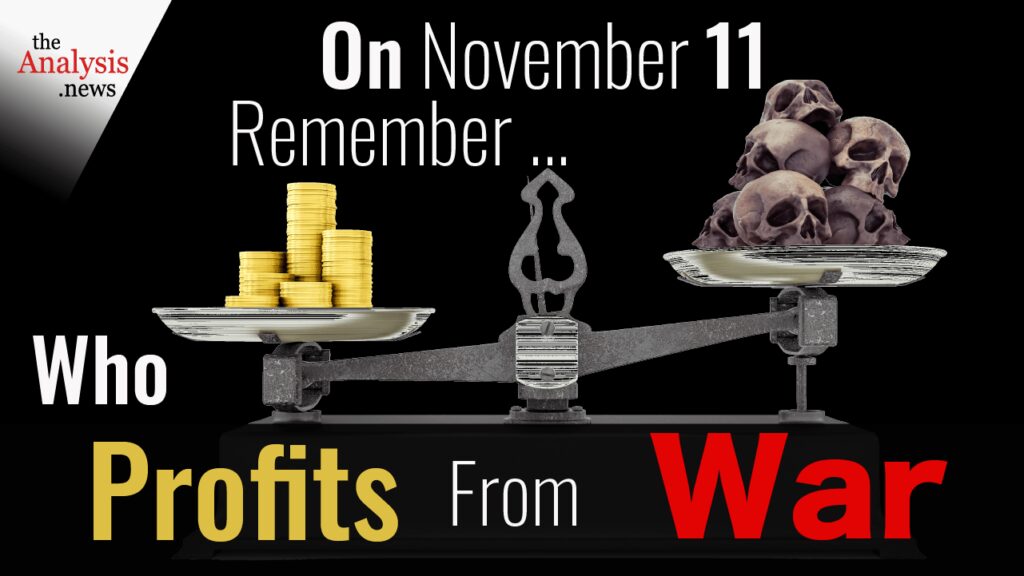
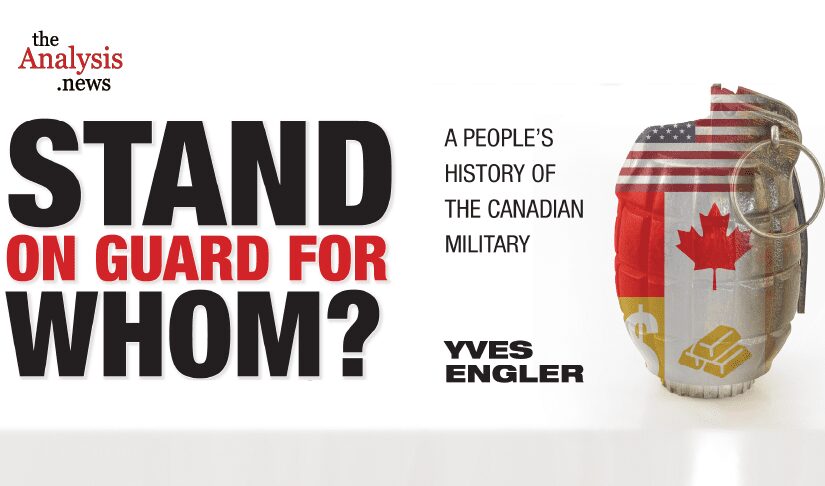
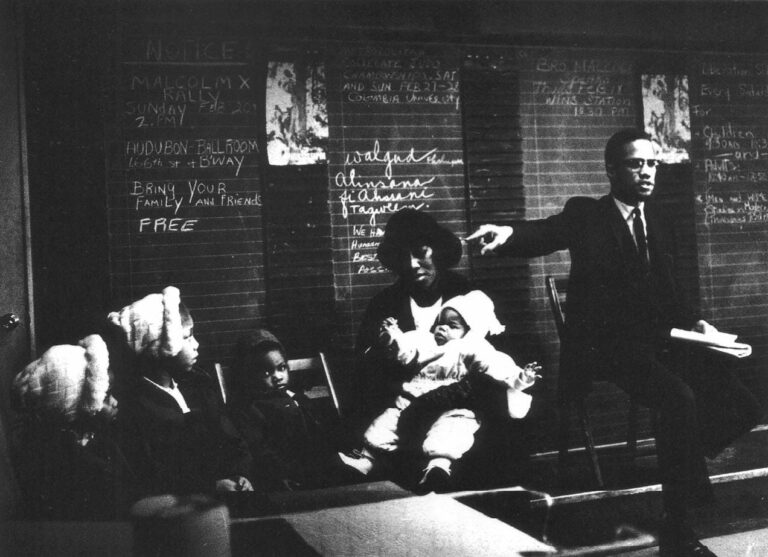
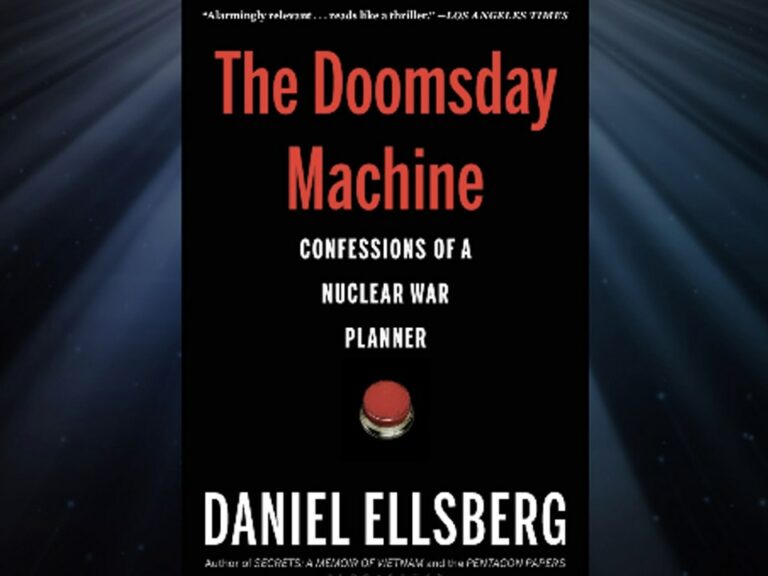


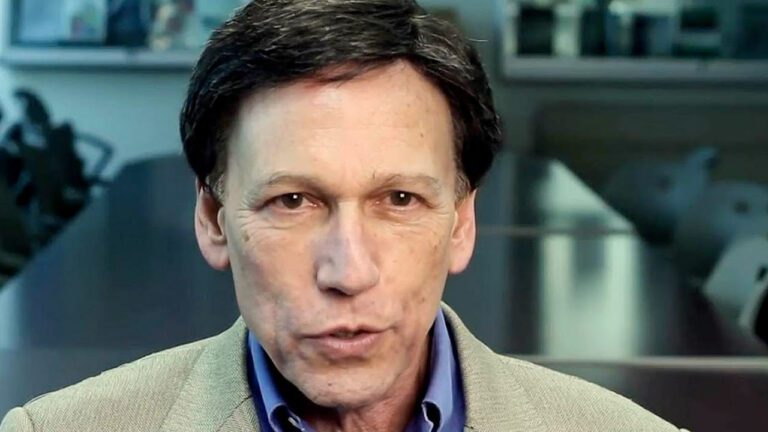
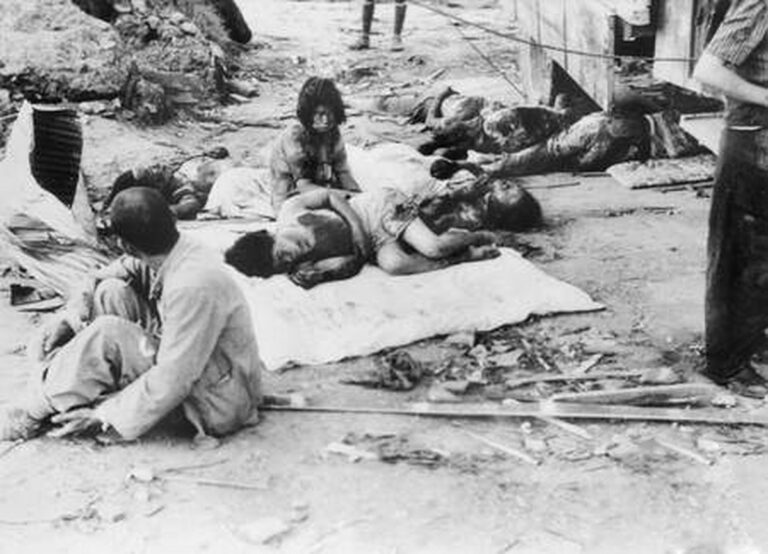
Free the Land